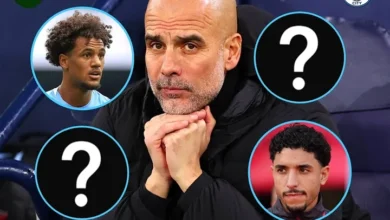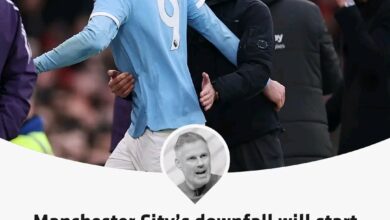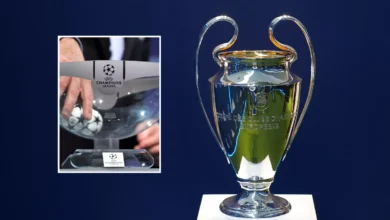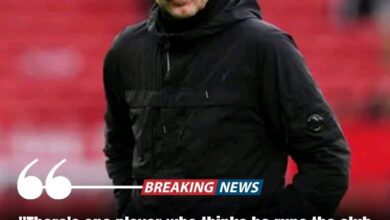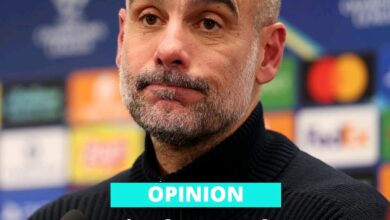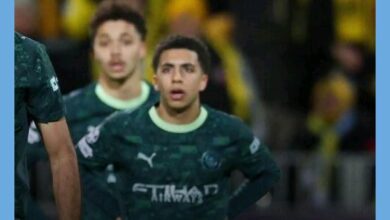Man City will give clear City Star transfer indicator in five days as deadline set
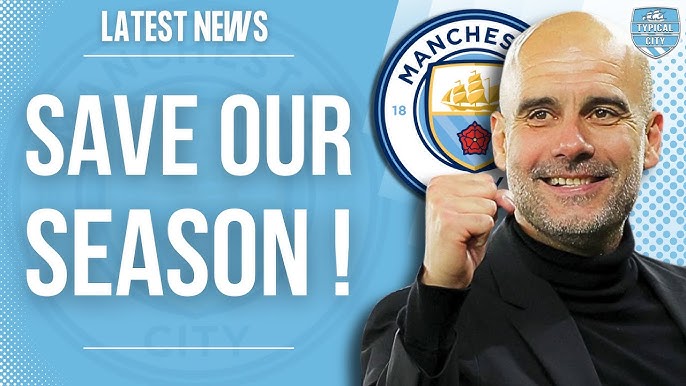
The footballing world is set to witness a pivotal moment in Jack Grealish’s career as Manchester City prepares to make a decision that could fundamentally alter the trajectory of England’s most expensive player. With just five days remaining until a crucial deadline, the Citizens are poised to provide their clearest indication yet regarding the future of their £100 million winger, a move that could send shockwaves through the Premier League transfer market.
The Current Predicament: From Hero to Peripheral Figure
Jack Grealish’s journey at Manchester City has been nothing short of a rollercoaster ride. The 29-year-old England international, who arrived at the Etihad Stadium in 2021 as the most expensive British player in history, now finds himself at a crossroads that could define the remainder of his career. What began as a dream move to one of Europe’s elite clubs has evolved into a situation where his future at the club appears increasingly uncertain.
The transformation of Grealish’s status at City has been particularly stark when viewed through the lens of recent seasons. During City’s historic treble-winning campaign, the former Aston Villa captain played a crucial role in Pep Guardiola’s tactical setup, providing the creative spark and unpredictability that helped propel the club to unprecedented heights. His ability to retain possession, create chances, and provide width in the final third made him an integral component of Guardiola’s system.
However, the current season has painted a dramatically different picture. Grealish has found himself increasingly marginalized, with his appearances in the Premier League becoming sporadic and his influence on matches significantly diminished. The most telling indicator of his current standing came during City’s final Premier League fixture against Fulham, where the England international was notably absent from the squad entirely.
Guardiola’s Rotation Policy: Strategy or Sign of Decline?
Pep Guardiola’s explanation for Grealish’s omission from the Fulham match was characteristically diplomatic, attributing the decision to routine squad rotation rather than any specific concerns about the player’s form or attitude. This explanation, while plausible given Guardiola’s well-documented tendency to rotate his squad throughout the season, has done little to quell speculation about Grealish’s long-term future at the club.
The Spanish manager’s approach to squad management has always been meticulous, with every decision carefully calculated to maximize both individual player development and collective team performance. However, the frequency with which Grealish has found himself on the periphery of the first team suggests that this may be more than simple rotation. The second half of the season saw the winger’s contributions become increasingly limited, with his match minutes dwindling and his impact on crucial games becoming negligible.
This decline in prominence has coincided with Manchester City’s continued success in domestic and European competitions, raising questions about whether Grealish’s skill set remains essential to Guardiola’s evolving tactical philosophy. The emergence of younger talents and the potential arrival of new signings may have further complicated his position within the squad hierarchy.
The Summer Overhaul: City’s Transfer Strategy
Manchester City’s preparation for the upcoming transfer window represents a significant shift in their approach to squad building. The club’s hierarchy has made it clear that substantial investment will be required to maintain their competitive edge, particularly as they face increased competition both domestically and in European competitions. This summer overhaul is expected to be comprehensive, affecting multiple positions across the pitch and potentially involving the departure of several established players.
The decision to pursue a major squad refresh reflects City’s recognition that football’s landscape is constantly evolving, and that even successful teams must adapt to remain at the pinnacle of the sport. The club’s financial resources, combined with their strategic vision, position them to make significant moves in the transfer market that could reshape their squad for the coming seasons.
Within this context, Grealish’s situation becomes particularly complex. His substantial transfer fee and considerable wages make him a valuable asset, but his reduced playing time and uncertain future role may necessitate difficult decisions. The club must balance their desire to maximize return on investment with their commitment to maintaining squad harmony and competitive balance.
The Club World Cup: A Crucial Decision Point
The upcoming Club World Cup presents Manchester City with a unique opportunity to provide clarity regarding Grealish’s future. The tournament, scheduled to take place in America during the summer, will serve as a crucial testing ground for the club’s squad depth and tactical flexibility. More importantly, it will offer definitive insight into which players remain central to Guardiola’s long-term plans.
The deadline for Club World Cup squad submissions, set for Tuesday, June 10, represents a moment of truth for both the club and Grealish. The decision to include or exclude the England international from the traveling party will send a clear message about his standing within the organization and his prospects for the upcoming season.
Should Grealish be selected for the tournament, it would indicate that City view him as an integral part of their future plans. Participation in the Club World Cup would provide him with valuable match minutes, the opportunity to impress potential suitors, and the chance to demonstrate his continued value to the team. Such exposure could prove crucial in maintaining or even enhancing his market value ahead of any potential transfer negotiations.
Conversely, exclusion from the squad would represent a significant signal that the club is prepared to part ways with their expensive acquisition. This scenario would allow Grealish to remain injury-free during a critical period when transfer negotiations are likely to intensify, while also providing City with greater flexibility in their discussions with interested clubs.
The Transfer Market Dynamics
The modern football transfer market operates according to complex dynamics that extend far beyond simple player valuation. Grealish’s situation exemplifies many of these intricacies, from the challenge of recouping substantial transfer fees to the delicate balance between player ambition and club strategy.
Several factors will influence any potential transfer involving Grealish. His age, at 29, places him in a category where clubs must carefully consider both immediate impact and long-term value. While he remains in his prime years, the substantial investment required to secure his services must be weighed against the likelihood of future resale value.
His wage demands, likely to be significant given his current contract at City, will also play a crucial role in determining the pool of potential suitors. Only clubs with substantial financial resources and ambitions to compete at the highest level are likely to be able to meet his salary expectations while also satisfying City’s transfer fee requirements.
The England international’s reputation and marketability add another dimension to his transfer value. His high profile, both domestically and internationally, makes him an attractive proposition for clubs seeking to enhance their global brand and commercial appeal. This factor could prove decisive in attracting interest from clubs willing to make the necessary financial commitment.
Potential Destinations and Market Interest
While specific clubs have not been officially linked with Grealish, several potential destinations emerge when considering teams with both the financial capacity and tactical need for a player of his profile. Premier League clubs seeking to strengthen their attacking options may view him as an experienced option who could provide immediate impact.
European clubs competing in the Champions League represent another category of potential suitors. Teams looking to add Premier League experience and proven quality to their squads might see Grealish as an attractive option, particularly if City are willing to negotiate on transfer terms to facilitate his departure.
The Saudi Arabian Pro League, with its substantial financial resources and growing ambition to attract high-profile players, could also emerge as a potential destination. While such a move would represent a significant shift in Grealish’s career trajectory, the financial incentives could prove compelling for both player and selling club.
The Player’s Perspective: Career Considerations
From Grealish’s standpoint, the current situation presents both challenges and opportunities. At 29, he faces a critical juncture in his career where decisions made in the coming months could significantly impact his remaining years as a professional footballer.
The prospect of limited playing time at City, despite the club’s success, may not align with his personal ambitions and career goals. Regular first-team football remains essential for maintaining his place in the England national team setup, particularly with major tournaments on the horizon.
A move to a club where he would be guaranteed regular starting opportunities could reignite his career and provide the platform to demonstrate the qualities that made him such a sought-after player. The challenge lies in finding a destination that offers both competitive football and the opportunity to compete for major honors.
Financial considerations will also play a role in his decision-making process. While money may not be the primary motivating factor, the reality of professional football means that contract terms and earning potential cannot be ignored when evaluating potential moves.
Manchester City’s Strategic Calculations
For Manchester City, the Grealish situation represents a complex strategic challenge that extends beyond simple player management. The club must consider multiple factors when determining their approach to his future.
The financial implications of any decision are significant. Recouping a substantial portion of their initial investment would provide resources for other transfer activities, while retaining an unhappy or underutilized player could prove costly both financially and in terms of squad dynamics.
Squad harmony and morale considerations are equally important. The presence of a player who is not regularly featured can create tension within the group, particularly if that player’s wage and profile are significantly higher than teammates who receive more playing time.
The club’s reputation in the transfer market is also at stake. How they handle Grealish’s situation will be closely observed by agents, players, and other clubs, potentially influencing future negotiations and recruitment efforts.
The Broader Implications
The resolution of Grealish’s situation at Manchester City will have implications that extend far beyond the immediate parties involved. The transfer market’s reaction to any potential deal could influence valuations and expectations for similar players in comparable situations.
For other Premier League clubs, Grealish’s availability could represent an opportunity to strengthen their squads with a proven performer. His experience in English football, combined with his technical abilities, makes him an attractive proposition for teams seeking to improve their competitive position.
The England national team’s preparations for future tournaments may also be affected by Grealish’s club situation. Regular playing time at club level remains crucial for maintaining international form and fitness, making his next career move particularly significant from a national team perspective.
Conclusion: A Defining Moment
As Manchester City prepares to submit their Club World Cup squad list, the football world watches with anticipation to see how they will handle the Jack Grealish situation. The decision, expected within the next five days, will provide the clearest indication yet of the player’s future at the Etihad Stadium.
Whether Grealish remains at City or seeks opportunities elsewhere, the coming weeks will prove crucial in determining the next chapter of his career. For a player who has experienced the highest highs and lowest lows of modern football, the resolution of his current predicament represents another pivotal moment in a career that has been defined by significant transitions.
The outcome will not only affect Grealish’s immediate future but will also serve as a case study in how elite clubs manage expensive acquisitions who have not met initial expectations. As the transfer window approaches and decisions loom, all parties involved must navigate the complex landscape of modern football with careful consideration of sporting, financial, and personal factors.
The next five days will reveal whether Jack Grealish’s Manchester City story continues or whether a new chapter awaits elsewhere. Regardless of the outcome, his situation serves as a reminder of the unpredictable nature of professional football and the constant evolution required to succeed at the highest level.






